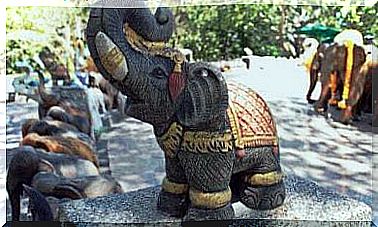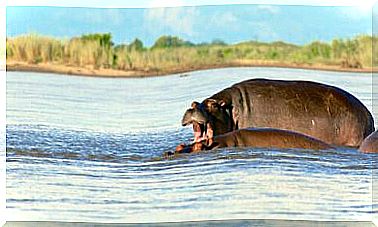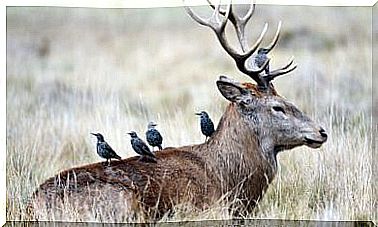Is It True That Dogs Can Smell Fear?

Mythology and many ancestral religions considered some animals sacred, due to the possibility that they possessed some special power, of an extrasensory type . In popular belief, dogs are said to be able to smell fear. It’s true?
In the classical world, it was believed that there was only one truth and that only the human being was the only one able to aspire to it. An intelligence superior to any animal. But, as is well known, recent scientific studies have shown that mammals such as dogs are able to get closer to man, overcoming the old conception that nailed him to mere instinct.
In many cases, the dog’s more developed senses have saved the lives of thousands of people around the world. In short, the dog possesses ‘powers’ unknown to man, such as that of sniffing fear. And this is precisely the topic that we will deal with in our article.
Can dogs smell fear?
It is more than proven that dogs possess a prodigious and infallible sense of smell , much more sensitive and precise than that of humans and many other animals. For this reason, they are used in missions such as the detection of weapons, drugs and bombs. In short, thinking by hypothesis, if fear has some smell, well surely your dog will be able to smell it.
Ours is a simple affirmation but which is based on a series of scientific experiments that have been carried out precisely to put the legendary canine sense of smell to the test.

Folk lore dictates that dogs and other animals would be able to know when a person is afraid of them through smell. A classic example is that of the horse, which refuses to be ridden by a frightened jockey. Likewise, a dog can exhibit defensive behavior with respect to some people.
What does fear smell like?
If dogs can smell fear, it is because there is a characteristic smell of this primary emotion. Only in this way the animals are able to detect it and associate it with the contingent situation. But which?
First of all we must keep in mind that the sensation of fear, which humans and animals feel, is basically a defense of the organism. This allows us to be alert to possible threats, avoiding them and keeping us alive in dangerous situations. An internal alarm that also triggers biological mechanisms.
So, if someone recognizes himself in a dangerous situation, the body releases a series of hormones to prepare the body for the reaction against the external threat. These hormones are released into the blood and body fluids, such as urine and sweat.
The presence of these hormones alters a person’s distinctive odor. Faced with these changes, sniffing strange or even annoying fragrances, dogs react aggressively or defensively. This explains why, compared to certain people, your dog behaves strangely.
When do dogs recognize the smell of fear?
But the physical symptoms of fear don’t just spill over into the smell. Excessive sweating, increased heart rate, restlessness or nervousness, changes in body temperature, altered tone of voice, dry mouth …
All of these are natural reactions of the body that are triggered to facilitate our conservation and survival.
When dogs smell fear, it is also because their two main senses (smell and hearing) recognize these signs. Sweat has a distinctive odor, while the increased heart rate can be perceived by dogs with privileged hearing. The combination of these factors can change a dog’s attitude towards a human.
Therefore, it is not recommended to force interaction with a dog in case the person feels threatened. The animal does not need an excuse to attack you nor does it want to. He simply interprets the person’s fear as a threat: he knows that you too are willing to fight to survive and acts accordingly.
Animals and natural disasters
Another curiosity based on the same logic is the claim that some animals, especially dogs, could perceive natural disasters.

This claim was reinforced after groups of scientists from different countries observed alterations in the behavior of animals weeks before natural disasters.
The organism of animals is able to sense the signs of substantial changes in the composition of the soil and air.
On the one hand, the emission of gas would increase the amount of positive ions in the environment. This would cause the production of a hormone similar to adrenaline. Therefore, the animals get agitated and are pushed to flee, away from danger.
Birds and mammals have always functioned as a kind of natural alarm for humans. We remember many examples, such as horses going mad before a hurricane or even chimpanzees and elephants, which even perceive the seismic vibrations produced by the intensification of the movement of the tectonic plates.
This would be the explanation for why animals become hyperactive when exposed to changes in their habitat . And they can help us understand when a natural disaster is approaching.
Source of main image: ** Parapluie **









